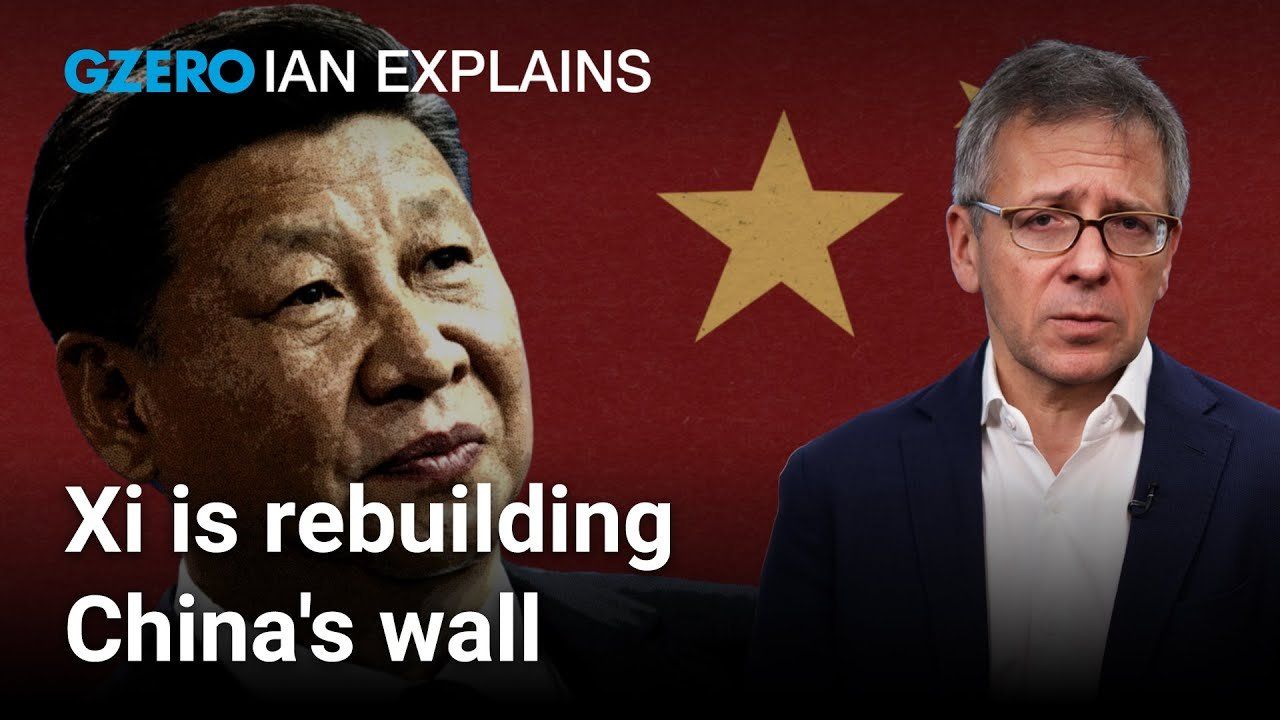Ian Explains
Ian Explains: Xi Jinping's nationalist agenda is rebuilding walls around China

Ian Explains: Xi Jinping's nationalist agenda is rebuilding walls around China | GZERO World

On Ian Explains, Ian Bremmer breaks down how Xi Jinping is turning China inwards at a time when it can’t afford to close itself off. Since assuming the presidency in 2012, Xi has consolidated power within the Communist Party to become China’s most dominant ruler since Chairman Mao Zedong. Under Xi’s watch, China has rolled back democratic rights in Hong Kong, implemented crackdowns on the powerful tech, finance, and real estate sectors, restricted English in schools, and even expanded the definition of espionage so broadly that basic interactions with foreigners are viewed as suspect.
President Xi’s nationalist vision has become so dominant that it's written into the Constitution and official history of the People’s Republic. But will that vision make China hostile to the very ideas that fueled its economic transformation in the first place?
For many in Iran, it’s a waiting game for how long Ayatollah Khamenei has left to live.
In a 30-minute call on Thursday, President Donald Trump reportedly told Ukrainian President Volodymyr Zelensky he wants to end the war with Russia as soon as possible — aiming for a deal by summer, but ideally within weeks.
Former British ambassador to the U.S. Peter Mandelson leaves his residence after he was released following his arrest by London police on Monday on suspicion of misconduct in public office, following the release of U.S. Justice Department files linked to the late financier and convicted sex offender Jeffrey Epstein, in London, Britain, February 26, 2026.
The ghost of Jeffrey Epstein continues to haunt the world.
Think you know what's going on around the world? Here's your chance to prove it.